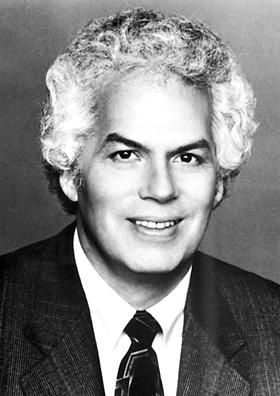
Nobel Prize "for his discovery of prions - a new biological principle of infection".
Stanley Prusiner was born in Des Moines, United States, in 1942. He studied medicine at the University of Pennsylvania and worked at NIH with Earl Stadtman, where he became familiar with the techniques of protein biochemistry.
Subsequently, he completed studies in Neurology at the University of California, San Francisco. There he treated a patient with the Creutzfeldt-Jakob Disease (CJD) and became completely fascinated by this disease.
At that time it was thought to be caused by a so-called "slow virus". Since then, Stanley Prusiner devoted all his energies to characterize the causative agent of this disease.
The works of Prusiner led him to a surprising discovery: the infectious agent that caused CJD lacked nucleic acids (the basis of the transmission of genetic information): it was constituted only by protein. Prusiner called this new biological entity "prion".
Prions are protein aggregates that propagate by imposing their form (conformation, in biochemical language) to a normal conformational protein. It could be said that they impose their mold on proteins. Technically speaking: prions propagate their quaternary,
tertiary and secondary structures; not as in the case of nucleic acids, the primary one. Prions cause fatal neurodegenerative diseases, such as CJD or the famous "mad cow disease".
In recent years Stanley Prusiner has impacted the scientific community again, with the hypothesis that highly prevalent neurodegenerative diseases, such as Alzheimer's, are caused by prions.
